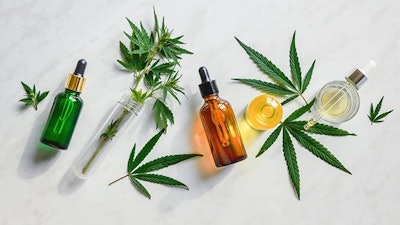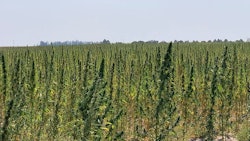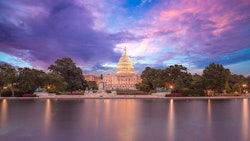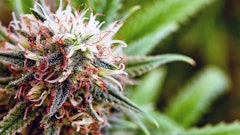
After three years of litigation, the Nebraska Supreme Court has dismissed drug trafficking charges against two retailers selling cannabidiol (CBD)—but whether it’s legal to sell CBD in the state remains as ambiguous as ever.
The cases in question, Nebraska v. Archer and Nebraska v. Russell, date back to late 2017, when the Washington County Attorney’s Office charged Deborah Archer, the owner of DJ’s Vapes, and Cory Russell, an employee of the Herman, Neb.-based shop, for selling CBD products.
Their arrest came on the heels of a memorandum issued two months prior by Nebraska Attorney General Doug Peterson declaring that CBD is considered a Schedule I controlled substance in the state, according to Pilot-Tribune & Enterprise. (The memorandum noted two exceptions to that rule—Epidiolex and CBD obtained from the University of Nebraska Medical Center, which was researching the cannabinoid’s effect on seizures.)
The cases went to a county court but were dismissed in June of 2018. The state refiled the cases that July in district court, but after a preliminary hearing, they were again dismissed in late October. Once again, the state refiled the cases in district court in late October of 2018, only for it to be dismissed the next month.
Meanwhile, just after the third case was dismissed, Peterson issued a second memorandum in November of 2018 reiterating that CBD was considered a controlled substance.
That brought the case to the Nebraska Supreme Court, where Washington County Attorney Scott Vander Schaff said he was seeking clarity on CBD regulations.
“From the beginning, we have tried to find answers to help assist this office and the public at large in understanding the confusion surrounding CBD and CBD-related products,” Vander Schaff said in a news release. “These cases were not about ‘winning’ or ‘losing’ but instead an attempt to understand the conflicting directives given to this office and the public.”
Vander Schaff did not get his answer.
Instead, the Supreme Court, too, dismissed the case. The court found the CBD products in question did not contain tetrahydrocannabinol (THC) and had none of the same intoxicating effects of THC, therefore, “the state failed to establish that the CBD tested in this matter was a ‘controlled substance’ under the Uniform Controlled Substances Act,” Chief Justice Michael Heavican wrote in his opinion.
In the cases prior to the supreme court, Vander Schaff argued that the chemical structure of CBD to THC wasn’t relevant. He pointed instead to the discrepancy between the Nebraska Hemp Farming Act (L.B. 657)—which states that any part of the Cannabis sativa L. plant, including cannabinoids, is legal so long as it has less than 0.3% delta-9 THC on a dry-weight basis—and Peterson’s memorandums stating CBD is illegal.
Vander Schaff asked the court to address the legality of CBD products throughout the state. The court did not.
“These exception proceedings do not involve anything other than the state’s failures of proof at the preliminary hearing, and do not implicate L.B. 657,” Heavican wrote in his opinion. “We therefore decline the invitation to address the prosecution of cases involving CBD products in this opinion.”
The Aftermath
The case represents the legal tightrope CBD manufacturers and retailers are walking in absence of regulations from the U.S. Food and Drug Administration (FDA). With no guidance from the federal agency, which holds its stance that most forms of CBD are illegal, local law enforcement is left to interpret patchwork laws that, as in this case, may contain discrepancies.
Archer tells Hemp Grower she conducted research before introducing any CBD products to her shop.
“I knew it was legal to begin with,” Archer says. “I always knew it was from the start, or I wouldn’t have brought it in.”
After three years of lawsuits, Archer is relieved the prosecution has come to an end—but it’s had a resounding effect on both her business and her life, she says.
She sells a variety of CBD products at her store, from oils and pain creams to gummies and vape cartridges. After the first lawsuit, Archer says sales dropped dramatically as she was forced to stop carrying all the CBD products she had.
When that first case was dismissed in June of 2018, Archer once again began selling the CBD products, and she said business has slowly building back up ever since.
“As long as you know your products are within the legal federal limits, stand your ground,” she advises CBD business owners should they ever find themselves in a similar situation. “Don’t back down.”


























